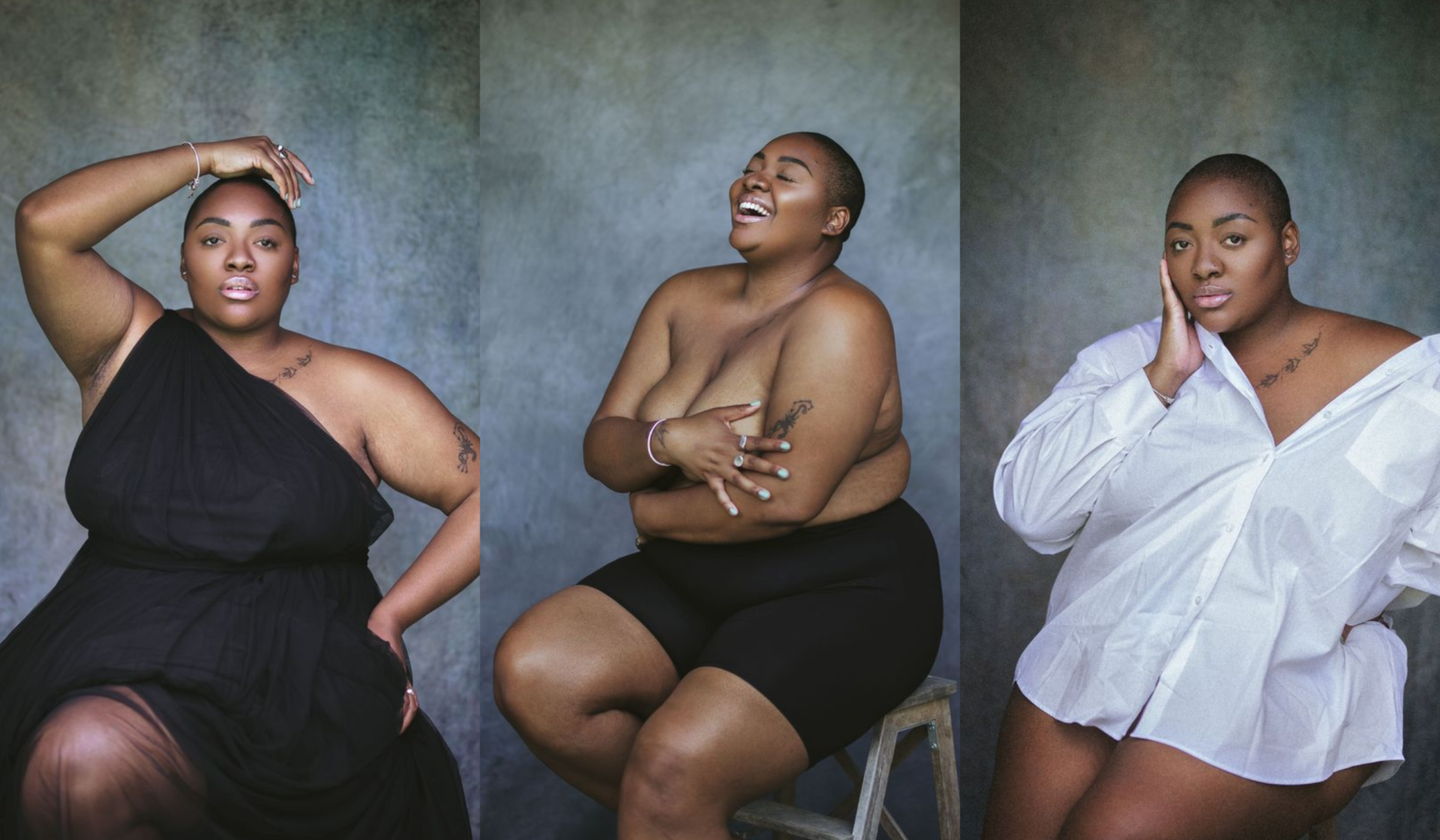The social media platform has pledged to do better when it comes to censoring plus-size Black women’s bodies, following a campaign from model Nyome Nicholas-Williams.
‘If thin, white models can post nearly-naked photos on Instagram, why can’t I,’ asked plus-size model Nyome Nicholas-Williams (who uses the handle @CurvyNyome) in response to Instagram repeatedly removing semi-nude photographs from her profile. ‘Millions of pictures of very naked, skinny white women can be found on Instagram every day, but a fat Black woman celebrating her body is banned? I feel like I’m being silenced.’
For years now, Instagram’s blatant censorship bias has come under increasing fire from its users. Clearly inconsistent with what is deemed to go against community guidelines, scrolling through the explore page still presents post upon post of men showing their nipples, influencers in nothing but thongs, and bigots spouting offensive rhetoric. But when Nyome uploaded a series of beautiful, tasteful images captured by Alexandra Cameron, Instagram immediately marked them unsuitable for viewing, citing that they contained ‘nudity or sexual activity.’
In one of the shots, Nyome sits with her head back, eyes closed, covering her bare breasts with her arms – a pose that you’ll find on the feeds of countless celebrities, influencers, and social media users with little to no objection from the platform. ‘Although they’re more than suitable for the space I’ve cultivated on my account, it even got to the point where my entire page was at risk of being deleted because I refused to let them censor my body,’ she says.
https://www.instagram.com/p/CD9Ffeag9nr/
‘When they censor my images, they tell me – and everyone else – that there is one size that is correct and worthy, a narrative that has been repeated to women our entire lives and this exact way of thinking is what I am trying to change. I never tire of speaking up about things I’m passionate about, but I am tired of this always happening when we’re in 2020.’
This quickly led to a wave of outrage online, Nyome’s followers eagerly rallying to share the censored photos under trending hashtag #IWantToSeeNyome. With momentum gathering somewhat overnight, it wasn’t long before thousands had come together to accuse Instagram of – yet again – exhibiting signs of racism and fatphobia.
‘Trying to get my picture to stay up has opened a wider discussion around the fact there is very obviously a major issue regarding the censorship of bigger bodies that are Black,’ she says. ‘All I’ve ever wanted to do was model and show plus-size Black bodies in a positive light so that everyone can be properly represented – this whole situation has been beyond shocking to me. My hope is that Instagram will have an answer as to why women like me are being censored so routinely and expose their approval process in doing so.’
https://www.instagram.com/p/CD9TVHdlB8v/
Fortunately, the plethora of posts and appeals supporting Nyome has brought Instagram’s apparent unfair targeting of Black content creators to the forefront, prompting CEO Adam Mosseri to acknowledge the urgent need for a reassessment of its algorithms.
‘Hearing concerns about whether we suppress Black voices and whether our products and policies treat everyone equally, we’re committed to looking at the ways our policies, tools and processes impact Black people and other under-represented groups on Instagram,’ he said.
But this wasn’t good enough. Asking Nyome whether or not she believed Mosseri’s intentions to be genuine, she expressed a strong belief that ‘no one wants to truly address what’s happening here’ because ‘blame is always passed on.’ In a modern day society, for Nyome, transparency is the most important thing – transparency from both people and the technology they control.
1/ We stand in solidarity with the Black community. But that’s not enough. Words are not enough. That’s why we’re committed to looking at the ways our policies, tools, and processes impact Black people and other underrepresented groups on Instagram.https://t.co/rVM3E0rFHA
— Adam Mosseri (@mosseri) June 15, 2020




















